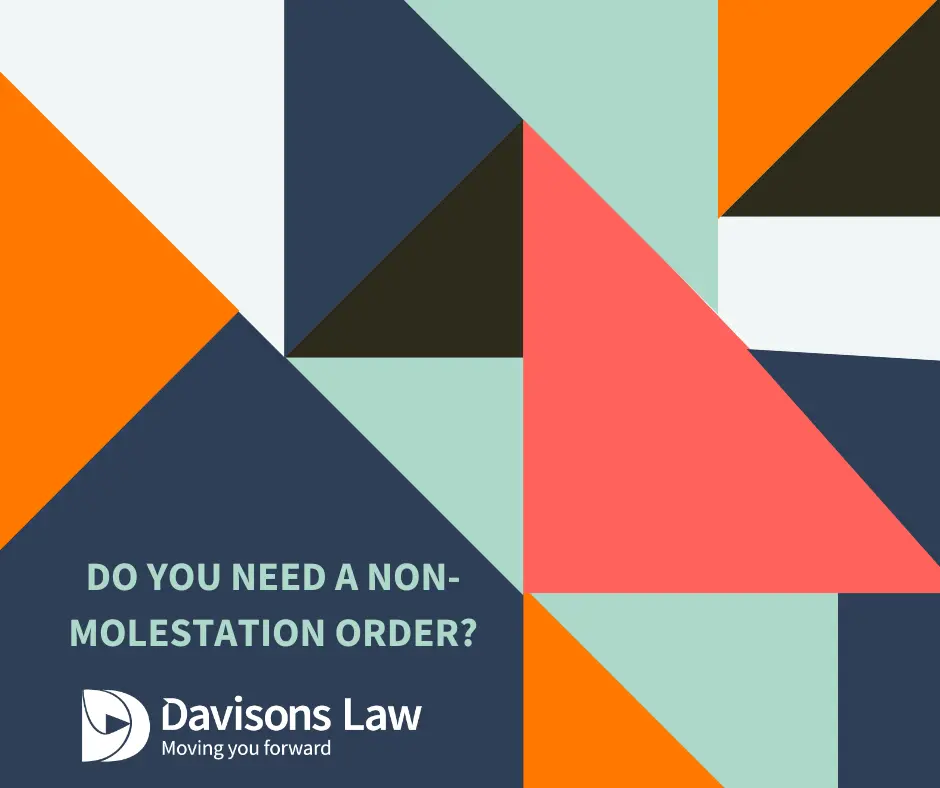What is a Non-Molestation Order?
A Non-Molestation Order is made under the Family Law Act to prevent a person from using/threating violence against another person, using/threatening violence to a child or molesting a person in any other way. The Order can also be used to keep a person away from your home or workplace should this be required. The person making the application is known as the “applicant” and the person who the application is being made against is known as the “respondent”.
The use/threat of violence or molesting another person can be direct or indirect. It can include any direct physical harm or verbal abuse. However, it can also include harassment in writing, via social media and through a third party.
Who can apply for a Non-Molestation Order?
In order to apply for a Non-Molestation Order, you must be, or have been, in relationship with the other person or are family members over the age of 16. If you were not in a relationship, or a related, you will not be able to apply for a Non-Molestation Order.
What is the process of applying for a Non-Molestation Order?
Given the sensitive nature of these applications, it is common for a party who is in need of protection to make the application to the Court on an urgent basis. Should the Court believe you are in immediate risk of harm, the Order is made “without notice” to the respondent. The matter would then be listed for a Court Hearing so that both parties are able to put forward their respective positions. However, if the Court believe they need to hear from the respondent prior to making any Order, they will list the matter of a Hearing in order to deal with the application.
These kind of applications should be dealt with carefully and thoroughly to ensure you are as protected as possible. Your initial application should be well thought out and as it will form the basis of these proceedings. In order for an application to be successful, you must be able to provide evidence of the threating/harassing behaviour, and that without a Court Order controlling the other persons behaviour you would be at risk of harm.
Can a Non-Molestation Order be contested?
The respondent can contest the Non-Molestation Order if they dispute the allegations that have been made. The respondent will have an opportunity to provide their position to the Court during a Hearing.
How long will a Non-Molestation Order remain in place for?
If successful, it is usual for the Non-Molestation Orders to remain in place for 6 – 12 months. However, if you are engaged in other proceedings, such as financial matters or child arrangements, the Court may allow the Non-Molestation Order to remain in place for a longer period of time to ensure you are protected through to the conclusion of the other matters.
What happens if a Non-Molestation Order is not followed?
If the respondent fails to abide by the terms of the Non-Molestation Order, they are said to be in breach of the Order. Breaching a Non-Molestation Order is a criminal offence and can lead to an arrest. The consequences of breaching the Order range from a fine to a custodial sentence.
How Davisons Law can help
Should you require further information please do not hesitate to contact the Family Team at Davisons Law on 0808 1342 125 to see how we can help you.




